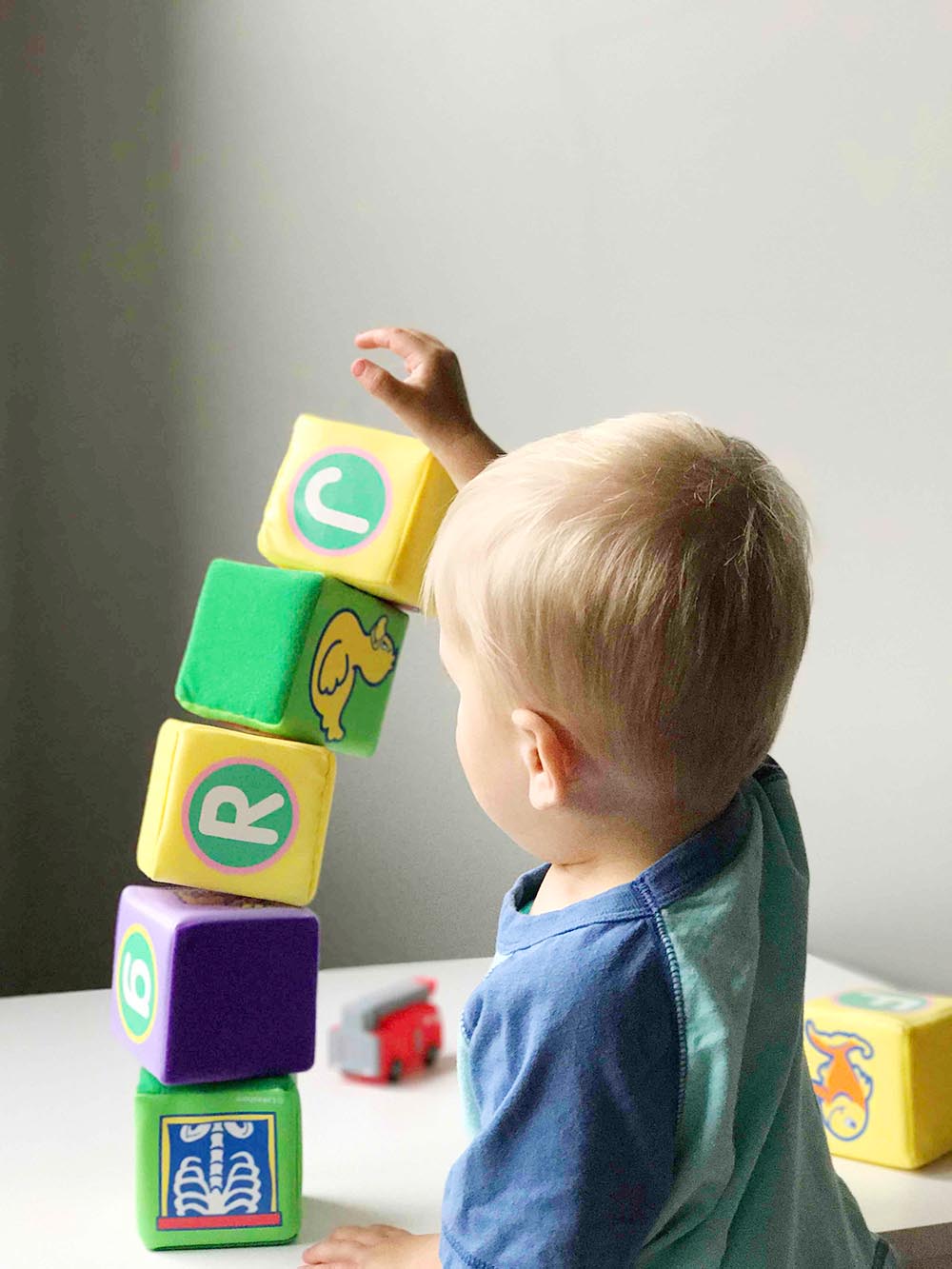Contents
Tips For Calming an Overstimulated Child
While stimulation is key to development and allows the brain to create it’s millions of connections, too much of a good thing can be problematic and lead to overstimulation. Just like adults, children can get overstimulated but might not yet have the coping mechanisms necessary for them to handle the situation on their own.
It’s Not a Tantrum
Finding the right balance of stimulation and helping your child develop ways to deal with the overwhelming feeling that can come with a barrage of new experiences, will lead to a happier, calmer child that can focus and learn more.
Remember that overstimulation can make little ones tired and overwhelmed and that these symptoms can make parents think the kids are disobeying and acting out. During these times, when the kids are feeling this way, it can often seem like a tantrum.
There are many ways to figure out the actual underlying problem. Figuring out the root of the issue will help the child realize the ways in which they can overcome the problem of overstimulation and how to deal with it when they undoubtedly face it again.

Signs of Overstimulation in Children
- Frequent “tantrums” or outbursts either in public or at home
- Covering eyes
- Covering ears
- Walking away from an activity
- Refusal to do an activity
- Refusal to go places
Stay Calm and Parent On
Children are still figuring out the world and take cues from their parents on what normal behavior is. If the child is feeling overstimulated, they can manifest this feeling into all sorts of reactionary responses such as being cranky or fussy, throwing a tantrum, giving up on the current activity or just refusing to do anything at all.
This is an important moment as a parent because children are still learning and if you get angry or annoyed with the child’s current behavior, this could lead to a compounding effect. This could ultimately make the behavior spiral downwards and make the situation harder to navigate.
Stay calm and remember your child’s brain is still developing and that these moments are a great time to teach them the very valuable skill of coping with stress and adversity. Sights, smells, tastes and so much more is new information to younger people, but as the adults, we have already allowed our brain to develop these pathways and often forget how much sensory overload it is.
We have already been dealing with it for years and often forget the plight of being younger. Take a deep breath before hastily acting and help your kid become their best.

Finding the Balance Between Overstimulation and Coping
Each child is different and finding the correct balance of quiet and activity time for them is very important. If your child starts showing some of the signs of overstimulation, ask them if they would like to spend some time in a quiet place such as their room.
Reading a book, listening to some calm music, or just playing by oneself somewhere familiar and safe, is sometimes exactly what their brain needs to help calm itself.
Often kids take on an abundance of ventures such as school, sports, musical instruments, and chores. Add in all the new experiences they deal with and this can often be inundated with more they can handle. What has once worked for one child might not work for another so finding out the balance and recognizing the warning signs is a good move in the right direction.
Have a Conversation
Another tip for calming an overstimulated child is, when you can see they are getting to the point of overstimulation, to have a conversation with them about what’s occurring. If you can, try and get them to express how they are feeling at the moment and to explain the feelings.
Bad behavior can just be your child expressing their feeling in the form of actions rather than words because they might not yet correlate their current actions with their mood. If they can’t express their current feelings into words, this is a great time to ask them if they would like the quiet time.
On the other hand, if they can express their feelings, this is a great time to try and get to the root of the problem. Perhaps the child has too many activities and not enough time to themselves or they couldn’t relate to the current activity.
Repetition is a major part of how our brains build the pathways that form our behavior and habits. Habits are easier built than broken and this is something very important to keep in mind when helping your child build theirs.
Showing them how their actions and behavior have changed because of what they are feeling, will allow them to understand what is happening and better understand themselves. Once they can realize that overstimulation is occurring, next all they need are the correct coping mechanisms and they can begin building beneficial brain pathways that will help them for the rest of their lives.
Some Coping Strategies
- Breathing exercises
- Removing yourself from the overstimulation
- Closing your eyes
- Headphones or earplugs to block out sound
Problematic Overstimulation
While overstimulation is a normal occurrence while growing and can be used as a teaching lesson, it can cross the boundary into being problematic. When overstimulation happens on a too frequent basis and begins to force you to change the structure of your life, medical attention may be required.
Some children take longer to develop the coping skills required to deal with the sensory overload and may require medical treatment such as Sensory Integration Therapy. When the overstimulation becomes too much of a problem, seek medical advice on whether there could be a possible treatment to help.
Take into consideration all the new experiences and how taxing this can be on the brain when dealing with your child. Sights, sounds, smells activities, all build neural connections into the brain and this takes up a lot of energy for children.
These pathways build and determine how each individual deals with scenarios in the future. Helping children realize that their mood and actions are correlated can help them recognize when they are getting overstimulated.
Teaching them the correct ways to deal with the situation or proper coping mechanisms will help them become happier and more productive. During the time when they aren’t able to handle all of this new information that they are taking in, a conversation can help reveal what problems the child is dealing with. Communication and understanding your child, while helping them understand themselves is key to calming an overstimulated child.
I hope this has helped you get some ideas for calming your overstimulated child. If you have any tips, please share in the comments!



